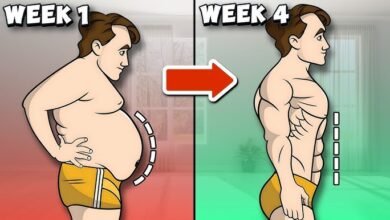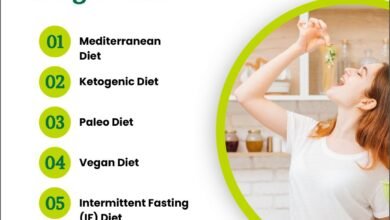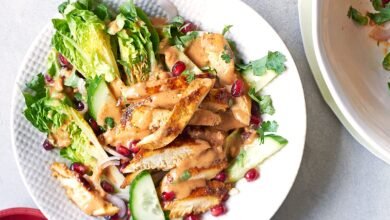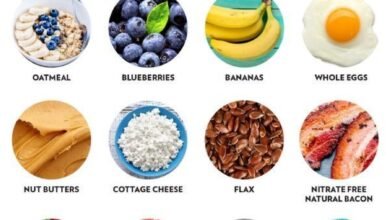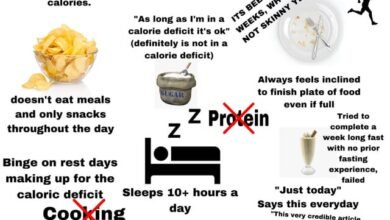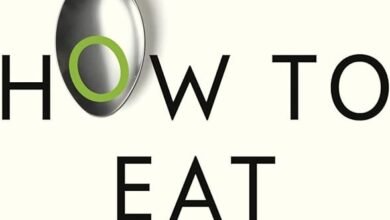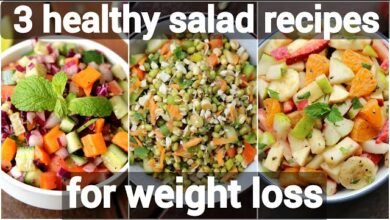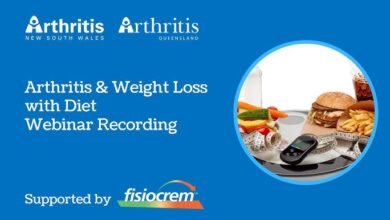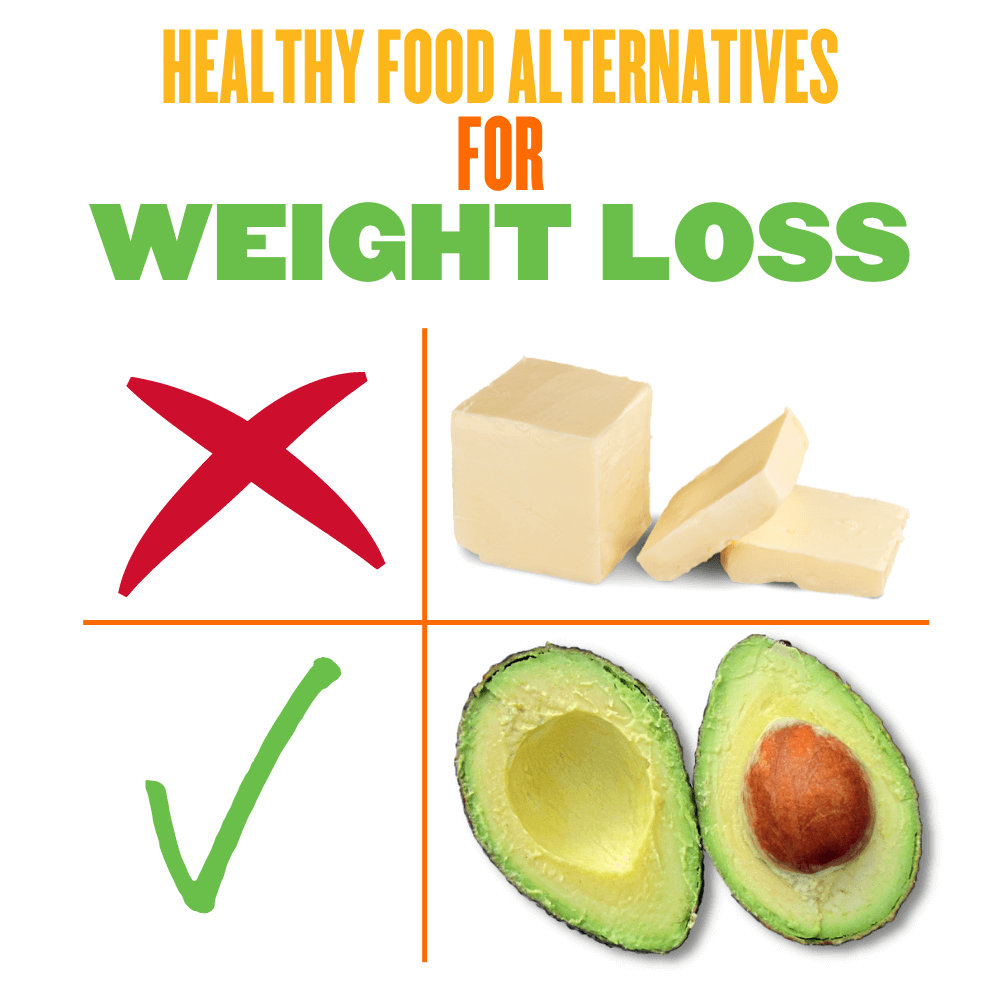
How Can I Eat Healthy Without Losing Weight: Top Tips
Are you looking to embrace a healthier diet without shedding those hard-earned pounds? You’re not alone.
Many people want to nourish their bodies with wholesome foods while maintaining their current weight. The good news is, you can achieve this balance with some simple strategies and mindful choices. By focusing on nutrient-rich foods, understanding your body’s needs, and making small tweaks to your eating habits, you can enjoy the benefits of a healthy diet without the worry of unwanted weight loss.
Keep reading to discover how you can eat healthy and stay just the way you love!

Credit: in.pinterest.com
Balanced Diet Essentials
Eating healthy without losing weight involves understanding balanced diet essentials. It’s about choosing the right foods to nourish your body. This helps maintain your current weight while improving overall health. Focus on macronutrients, vital micronutrients, and the right portions. Each plays a crucial role in achieving your goals.
Macronutrient Importance
Macronutrients include carbohydrates, proteins, and fats. Carbs provide energy for daily activities. Choose whole grains like brown rice and oats. Proteins are essential for muscle maintenance. Opt for lean meats, beans, and dairy. Fats are vital for hormone regulation. Avocados, nuts, and olive oil are good choices.
Balance these macronutrients to avoid weight loss. Ensure each meal includes carbs, proteins, and fats. This keeps energy levels stable. It also supports muscle health and overall wellness.
Vital Micronutrients
Micronutrients are vitamins and minerals. They support various body functions. Vitamin D helps with bone health. Sources include fish, eggs, and sunlight. Iron is crucial for blood health. Find it in spinach, red meat, and lentils.
Include a variety of fruits and vegetables. They provide essential micronutrients. Aim for colorful produce. This ensures a broad range of vitamins and minerals. Proper micronutrient intake boosts energy and vitality.
Caloric Intake Management
Managing your caloric intake is crucial for eating healthy without losing weight. It involves understanding your body’s energy requirements and adjusting your food intake accordingly. By focusing on caloric intake management, you can maintain your weight while meeting your nutritional needs. This approach ensures you consume enough calories to support your body’s functions.
Calculating Maintenance Calories
To maintain your weight, calculate your maintenance calories. These are the number of calories your body needs to stay at its current weight. You can find this by using an online calculator or a formula. It considers factors like age, gender, weight, height, and activity level. Knowing your maintenance calories helps tailor your diet to meet your needs.
Keep a food diary to track what you eat. It helps spot where adjustments are needed. Compare your daily calorie intake to your calculated maintenance level. This shows if you are meeting your energy requirements.
Avoiding Caloric Deficit
Avoid consuming fewer calories than your body needs. This can lead to unwanted weight loss. Eating below your maintenance calories creates a caloric deficit. To prevent this, focus on balanced meals. Include proteins, carbs, and healthy fats. They provide energy and keep you full.
Listen to your hunger cues. Eat when hungry, not just out of habit. Prioritize nutrient-dense foods like fruits, vegetables, and whole grains. They offer essential nutrients without excessive calories. Regularly reassess your caloric needs as activity levels change.
Choosing Nutrient-dense Foods
Choosing nutrient-dense foods is key when you want to eat healthy without losing weight. By focusing on foods packed with vitamins, minerals, and essential nutrients, you can maintain your weight while boosting your overall health. You’ll feel energized and satisfied, while keeping your body well-nourished.
Whole Grains And Proteins
Whole grains like quinoa, brown rice, and oats are excellent sources of nutrients. They provide energy, fiber, and vital minerals like magnesium. By adding these to your meals, you help stabilize your blood sugar levels and keep hunger at bay.
Proteins are crucial for maintaining muscle mass and overall health. Opt for lean meats, beans, and eggs. A friend once told me how switching to grilled chicken and lentils helped him feel fuller without compromising his weight goals. Have you tried mixing different proteins in one meal?
Healthy Fats And Fiber
Healthy fats are essential for brain function and hormone regulation. Include avocados, nuts, and olive oil in your diet. These fats not only taste good but also help you feel satisfied after meals. Don’t shy away from them!
Fiber is another important component that aids digestion and keeps you full. Consider adding fruits, vegetables, and whole grains to your plate. A colorful salad can be both a feast for the eyes and a powerhouse of nutrients. What’s your favorite fiber-packed dish?
By choosing nutrient-dense foods, you can enjoy eating without the stress of losing weight. Embrace this approach and relish each meal with confidence and joy.

Credit: in.pinterest.com
Meal Planning Strategies
Create balanced meals to maintain your weight while eating healthy. Include whole grains, lean proteins, and healthy fats. Focus on nutrient-rich foods like fruits and vegetables to nourish your body. Enjoy regular meals and snacks to keep energy levels steady without weight loss.
Eating healthy doesn’t always mean losing weight. Sometimes, you want to maintain your weight while still nourishing your body with wholesome food. Meal planning is your secret weapon here. With the right strategies, you can enjoy a balanced diet without shedding pounds. Let’s dive into some effective meal planning strategies to help you achieve this balance. ###Portion Control Techniques
Portion control is crucial when you’re trying to eat healthy without losing weight. It’s all about finding the right amount of food that satisfies your hunger and nutritional needs. Start by using smaller plates and bowls. This simple trick can help you keep portions in check without feeling deprived. You can also practice mindful eating. Take your time to chew and savor each bite. This not only aids digestion but also helps you recognize when you’re full, preventing overeating. ###Regular Meal Timings
Sticking to regular meal timings can make a world of difference. It helps your body establish a routine, ensuring you’re neither too full nor too hungry at any point. Try having three balanced meals a day, with healthy snacks in between. This can help maintain your energy levels throughout the day. Consistency is key. Eating at the same times daily trains your body to expect food at certain intervals, reducing random cravings. Have you ever noticed how skipping a meal makes you more likely to overeat later? Regular meals can prevent this, keeping your appetite in check. Incorporate these strategies into your routine and notice how they positively impact your eating habits. What changes will you make to your meal planning today?Snacking Wisely
Snacking wisely is essential for maintaining a healthy diet without losing weight. It involves choosing snacks that are nutritious and satisfying. Thoughtful snacking keeps energy levels steady and hunger at bay. It also supports overall health and well-being.
Nutritious Snack Options
Choose snacks rich in nutrients and health benefits. Nuts like almonds or walnuts provide healthy fats and protein. Fresh fruits offer vitamins and natural sweetness. Greek yogurt is a great option with protein and probiotics. Veggies with hummus make a crunchy, delicious snack. Whole-grain crackers or popcorn offer fiber and a satisfying crunch.
Avoiding Empty Calories
Avoid snacks filled with empty calories and little nutrition. These often include sugary treats like candy or soda. They provide energy quickly but leave you hungry soon after. Chips and other fried snacks are high in unhealthy fats. Processed foods often contain added sugars and preservatives. Instead, choose snacks that fuel your body and support your health.
Hydration And Its Role
Eating healthy without losing weight involves maintaining balance. Hydration plays a key role by supporting digestion and nutrient absorption. Drinking water regularly helps keep energy levels steady, aiding in healthy eating habits.
Staying hydrated is crucial for maintaining your overall health, and it can also play a pivotal role in eating healthy without losing weight. Many people underestimate how essential water is in their daily routine. Whether you’re sipping water throughout the day or getting it from food, hydration supports your body’s functions without adding or dropping pounds.Importance Of Water
Water is more than just a thirst-quencher. It’s a key player in digestion, nutrient absorption, and even energy levels. Staying hydrated ensures that your body can function at its best without compromising your weight. Have you ever noticed how sometimes hunger pangs are actually just your body asking for water? Next time you feel peckish, try drinking a glass of water first. It might surprise you how much better you feel.Hydrating Foods
Incorporating hydrating foods into your diet is a smart way to boost your water intake. Foods like cucumbers, tomatoes, and watermelon are not only rich in water but also packed with nutrients. One summer, I started adding more hydrating foods to my salads, and it made a noticeable difference. I felt more energetic and less bloated, without any weight loss. Think about adding soups, smoothies, or even a refreshing fruit salad to your meals. These options are delicious and help keep your water intake up without the monotony of drinking plain water. Are you aware of how much water you’re getting from your food? It’s worth considering as you plan your meals. Stay hydrated, feel great, and enjoy your journey to healthy eating without the worry of unwanted weight changes.Physical Activity Balance
Balance between activity and diet is crucial for maintaining weight. Opt for healthy fats and proteins while keeping portion sizes appropriate. Regular meals and snacks help sustain energy without unnecessary weight gain.
Eating healthy without losing weight may seem challenging, but maintaining a balance in your physical activity can help. The goal is to ensure that the calories you burn match the calories you consume, allowing you to enjoy nutritious foods without shedding pounds. This involves carefully choosing the types and intensity of your physical activities.Incorporating Strength Training
Strength training is a fantastic way to maintain or even gain weight while staying healthy. Lifting weights or doing bodyweight exercises, like push-ups and squats, can help build muscle mass. More muscle means you can eat more calories without gaining fat. You might wonder how often to lift weights. Aim for two to three sessions a week. Each session can be 20 to 30 minutes long, focusing on different muscle groups. Think about your lifestyle. If you enjoy gardening or carrying groceries, these activities also count as strength exercises. Can you add more of these into your daily routine?Moderate Cardio Suggestions
Cardio exercises are essential for heart health, but they can also lead to weight loss if overdone. The key is moderation. Engage in activities like brisk walking or cycling for about 150 minutes a week. Enjoy activities that fit naturally into your life. A short daily walk with a friend or a weekend bike ride in the park can be enjoyable and effective. Keep the intensity moderate to prevent burning too many calories. Reflect on what you love doing. Do you prefer dancing or swimming? These activities are also great cardio options that can help maintain your weight. Can you find a local class or group to join for extra motivation? Balancing physical activities with your dietary intake ensures you stay healthy and energized. Which of these activities will you try first to support your healthy eating goals?
Credit: www.reddit.com
Mindful Eating Practices
Mindful eating practices can be a game changer for those who want to eat healthily without losing weight. It’s not just about what you eat, but how you eat. By paying close attention to your body’s signals and understanding your emotional triggers, you can maintain a healthy diet without shedding pounds.
Listening To Hunger Cues
Your body is pretty smart. It knows when it’s hungry and when it’s full. Are you listening? Instead of eating at fixed times, try tuning into your body’s hunger signals.
Think about the last time you ate just because it was “lunchtime” instead of feeling hungry. Pay attention to the subtle signs like a growling stomach or low energy levels. Eating when you’re truly hungry can help maintain your weight while keeping you healthy.
Try this: before reaching for a snack, ask yourself, “Am I really hungry?” This simple question can prevent unnecessary eating and help you focus on nutritious choices.
Avoiding Emotional Eating
Emotional eating can sneak up on you. Maybe you’re stressed, bored, or just need a little comfort. It’s easy to reach for food without thinking. But how often do these emotions actually mean you’re hungry?
Recognizing emotional triggers can help you avoid eating when you’re not physically hungry. Next time you’re tempted to snack after a rough day, pause and identify what you’re really feeling. Are you hungry, or is it something else?
If the urge to eat isn’t hunger-related, try redirecting your emotions. Engage in a hobby, take a walk, or talk to a friend. These activities can provide comfort without extra calories.
Mindful eating isn’t about restricting yourself; it’s about understanding your body and emotions. Are you ready to listen to your body and eat with intention? It’s a journey worth taking for a balanced lifestyle.
Frequently Asked Questions
Can I Eat Healthy And Not Lose Weight?
Yes, you can eat healthy and not lose weight. Factors like portion size, metabolism, and physical activity impact weight. A balanced diet supports health but doesn’t always result in weight loss. Adjusting calorie intake and exercise may be necessary for weight changes.
How To Be Healthy But Not Lose Weight?
Focus on a balanced diet rich in nutrients. Eat whole grains, lean proteins, fruits, and vegetables. Include healthy fats like avocados and nuts. Stay active with strength training and cardio exercises. Ensure adequate hydration and sleep. Regular health check-ups can help monitor your wellness without losing weight.
How To Stop Losing Weight While Eating Healthy?
Increase your calorie intake by consuming nutrient-rich foods. Focus on whole grains, healthy fats, and proteins. Monitor portion sizes to avoid overeating. Include strength training exercises to build muscle mass. Consult a nutritionist for personalized advice to maintain a balanced diet and healthy weight.
What Is The 3-3-3 Rule For Weight Loss?
The 3-3-3 rule involves three meals a day, three snacks, and drinking three liters of water daily. This approach emphasizes portion control, balanced nutrition, and hydration, aiding weight loss. It encourages regular eating patterns and ensures you stay hydrated throughout the day for optimal metabolism.
Conclusion
Eating healthy without losing weight is possible and manageable. Focus on balanced meals. Include proteins, healthy fats, and whole grains. Listen to your body’s hunger signals. Snack wisely with nutrient-rich options. Stay hydrated to support digestion and energy levels. Remember, consistency is key.
Make small, sustainable changes to your diet. Monitor your progress and adjust as needed. This approach can help you maintain your current weight. Enjoy nutritious food without worrying about weight loss. Embrace a healthy lifestyle for long-term benefits. Your journey to better health starts with mindful eating choices.
